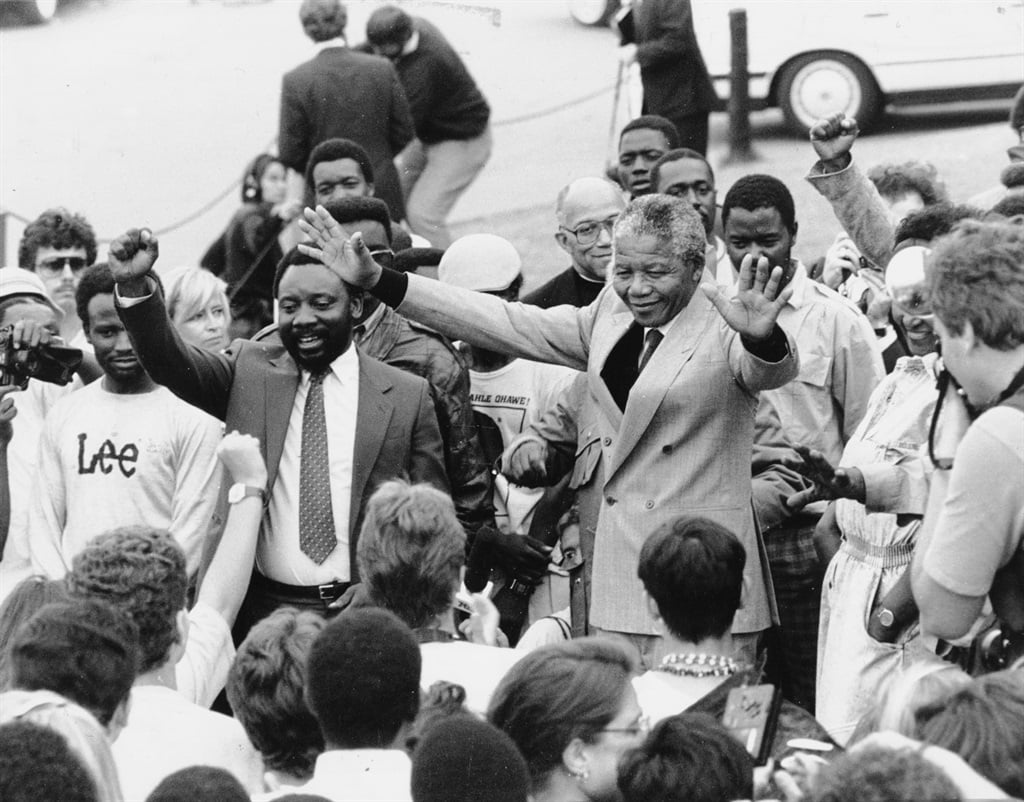
I have read and listened to many speeches. For example, I think of those of Franklin Roosevelt, the US President who revived the country’s economy following the Great Depression of the 1930s, offering his fellow Americans a “New Deal”. I think of the speeches of the Cuban leader and revolutionary, Fidel Castro, who successfully steered the Cuban economy to the left at a time when the West hoped to nip his socialist policies in the bud.
However, none of the speeches I’ve read or listened to referred to a song. The closest to this that they came was the citation of poems and literature: our former President Thabo Mbeki is a case in point, with his references from William Shakespeare, WB Yeats and other great authors.
But when newly elected President Cyril Ramaphosa delivered his epoch making state of the nation speech on February 16 2018, quoting the late Hugh Masekela’s Thuma Mina, he was affirming that songs can often be an important form of intangible heritage.
Sadly, Masekela is no longer with us. But by evoking his song, Ramaphosa struck the right chord, bringing the parliamentarians to their feet amid a storm of applause. Surely it was a moment when many suddenly realised the importance of songs in healing, rebirth and nation building.
Arguably, the section of the speech on Thuma Mina particularly inspired most South Africans, giving them hope as the country emerges from the rot and corruption that had come to characterise our Rainbow Nation. South Africa had become a society characterised by unashamed conspicuous consumption and the plundering of state resources, a nation which seemed to have lost all sense of dignity, nationhood and values. The Thuma Mina speech, as Ramaphosa’s address is coming to be known, demonstrates that the nation now has a president mindful of the importance of history, heritage and cultural values.
Thus we should not forget the messages that permeate the music of icons such as Masekela, Jonas Gwangwa, Miriam Makeba, Dorothy Masuka and others. Through such music we can achieve nation building, social cohesion and mental restoration as we emerge from the era of uncertainty and pessimism.
Even in exile, Oliver Tambo criticised the negative attitude that the function of arts and culture was simply to while away time. Himself a choir master at St Peters in Johannesburg in the mid-1940s, Tambo took it upon himself to promote the arts in exile, encouraging cultural diversity and social cohesion.
The establishment of the Medu Arts Ensemble, the ANC cultural group, is attributed to Tambo’s efforts, as is the establishment of the movement’s arts and culture desk.
It comes as no surprise that in post-apartheid South Africa the ANC-led government argued for a separate and independent arts and culture department, bringing issues around nation building and social cohesion centre stage.
Ramaphosa’s embrace of and approach to the figures and events of the past signifies the president’s keen awareness of how current events take their place in the unfolding drama of the nation’s history. We may remember that it was Ramaphosa, as deputy president, who humbly received a memorandum from a delegation of four Khoisan representatives at the Union Buildings in December.
He assured the Khoisan delegation that their memorandum would be given full attention, and briefed them on the bill soon to be submitted to the National Council of Provinces, recognising the Khoisan and their heritage.
The Khoisan delegation had camped at the Union Building gardens, proclaiming their rights.
During his address in Galeshewe on September 24 2016, Ramaphosa heaped praises on Chief Galeshewe, who fought vehemently against the colonial forces.
“We hold Kgosi Galeshewe dear in our hearts for leading the Ba Tlhaping people against colonial subjugation and injustice”, he said.
It was in this gathering that he reminded us that the custodians of our knowledge, the living human treasures, “are living legends who possess rare insight into our culture, oral history and past lived experiences”.
In addition, Ramaphosa is well versed in the country’s diverse languages as was apparent in his state of the nation address. These languages are windows into South Africa’s cultural diversity, now free to flourish within a broader unity as the country emerges from the atrocious apartheid past.
Ramaphosa signals that, as South Africans, we should take pride in our languages, history and heritage which were previously marginalised and despised by the apartheid regime. There could be no better time for this reassertion, as the country celebrates the centenary of the birth of our founding father, Mandela.
By taking to the podium at the Grand Parade on February 11 to commemorate the 28th anniversary of Mandela’s release from prison, Ramaphosa once more demonstrated his awareness of the importance of crucial historical moments that resonate with the people of this country, drawing strength from the historical event as the nation prepared to embark on a new beginning.
It was from the same balcony that Mandela delivered his first speech after his release from prison, with Ramaphosa by his side.
From Mandela’s speech at the Grand Parade, Ramaphosa remained at his side as chief negotiator for the ANC during talks with the apartheid regime in the turbulent early 1990s.Together with other ANC leaders, he brought about a peaceful settlement for a South Africa close to the horrors of civil war. His negotiation and diplomatic skills were employed once more when in the last few weeks, he provided the opportunity for President Jacob Zuma to step down with dignity and without humiliation.
Ramaphosa can also take credit for his significant role in drafting and producing our world-acclaimed Constitution, the nation’s pride. Today the Constitution is a symbol of unity in diversity for our country, and a precious heritage to be passed to generations to come, ensuring that no matter his or her social standing, all in South Africa are equal before it.
It is also no secret that Mandela would have wanted Ramaphosa as his second in command in government. Though this was not to be, the country has now acquired his leadership at a time when its fate was hanging by a thread, 24 years into democracy.
As the country enters a new dispensation, because it is through our history that important lessons can be drawn, we need a national conversation on nation building, healing and restoration and a more concerted effort to promote our history and heritage. It is through the last few stormy years, bedevilled with socioeconomic and political upheavals, that we can learn never to repeat our past mistakes.
There is no better time than this for such a national discourse, when the country celebrates 100 years of Mandela’s life. It is in tumultuous times like these that we need Ramaphosa’s wisdom to help us emerge from the quagmire in which we find ourselves. This is precisely the role he played in the early 1990s when South Africa was on the brink of civil war.
The nation is counting on the president to steer the ship of state in the right direction, restoring it to its rightful place. South Africans should put their shoulders to the wheel in the spirit of Thuma Mina. Only then can we once more talk of a prosperous nation, rich in diversity: A! Zanethemba!
• Advocate Sonwabile Mancotywa is the chief executive of the National Heritage Council




 Publications
Publications
 Partners
Partners








